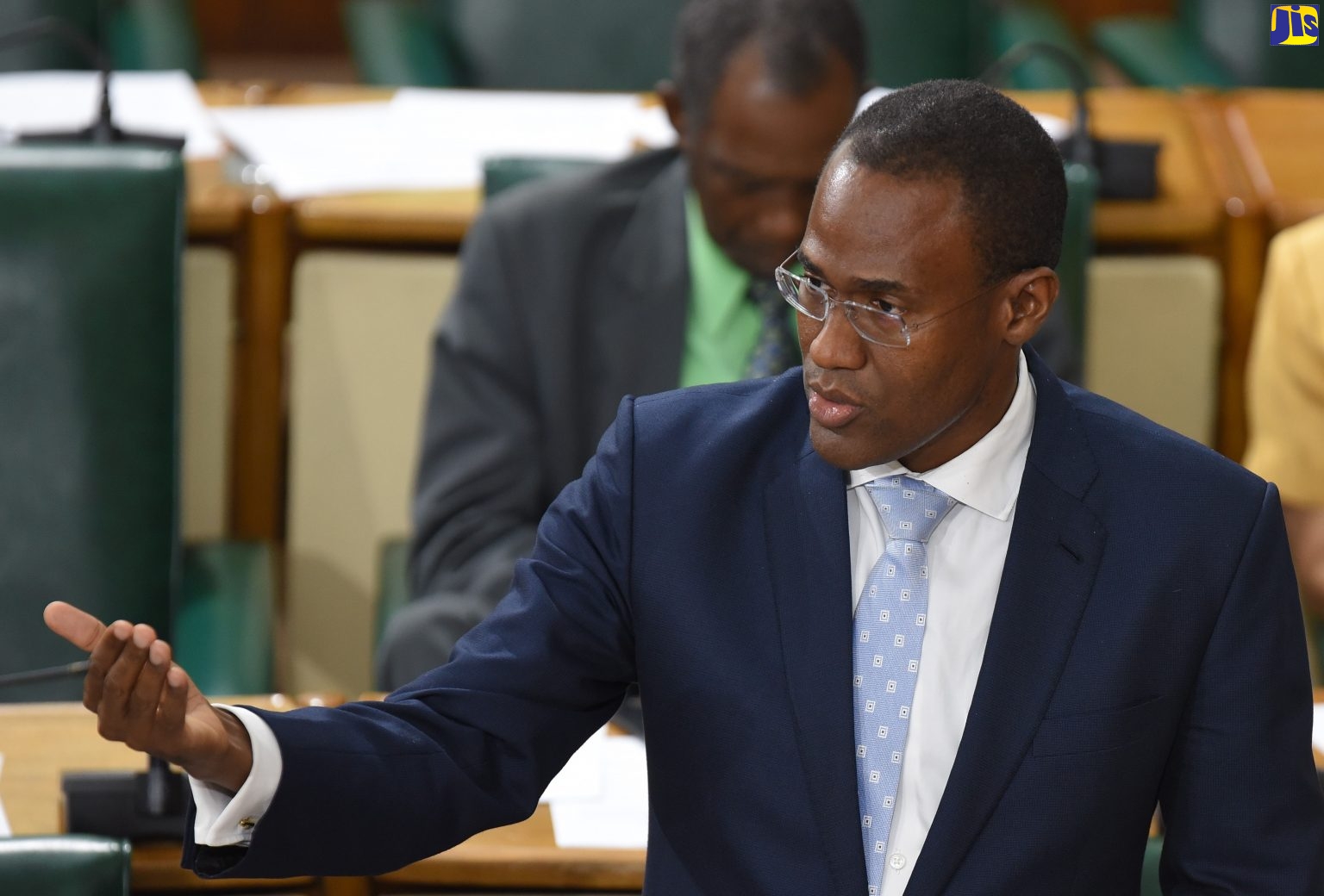Cabinet Approves Measures to Further Boost National Insurance Fund
By: , December 12, 2018The Key Point:
The Facts
- Minister of Finance and the Public Service, Dr. the Hon. Nigel Clarke, made the announcement during a statement to the House of Representatives on Tuesday (December 11).
- Dr. Clarke said some of the measures include increasing the contribution rate from five per cent to 5.5 per cent, effective April 1, 2019, which the employer and employee will share equally, at 0.25 per cent each.
The Full Story
Cabinet has approved several measures to enhance the National Insurance Fund’s (NIF) sustainability and boost the adequacy of the accompanying benefits.
Minister of Finance and the Public Service, Dr. the Hon. Nigel Clarke, made the announcement during a statement to the House of Representatives on Tuesday (December 11).
Dr. Clarke said some of the measures include increasing the contribution rate from five per cent to 5.5 per cent, effective April 1, 2019, which the employer and employee will share equally, at 0.25 per cent each.
Cabinet also approved a further 0.5 per cent increase in the contribution rate from 5.5 per cent to six per cent, effective April 1, 2020, which employers and employees will also share equally, at 0.25 per cent each.
Additionally, the National Insurance Scheme (NIS) insurable wage ceiling will be increased for purposes of calculating the contribution amounts from $1.5 million to $3 million, in January 2021; while the NIS insurable wage ceiling will be increased for purposes of calculating contribution sums from $3 million to $5 million, in January 2022.
Dr. Clarke informed that the insurable wage ceiling moved from $250,000 in 1996, to $500,000 in 2003, $1 million in 2010, and $1.5 million in 2013.
The Minister noted that the measures are necessary due to the findings of a 2016 actuarial review of the NIS, which was undertaken by Eckler Consultants and Actuaries.
The actuarial report, as at March 31, 2016, indicated that without an increase in the contribution rate and/or other related parameters, the NIF would have negative cash flow by 2029.
This would see the sum of annual pensions and other NIF-funded benefits and administrative costs paid exceeding the annual contribution and investment income.
“The actuarial report further calculated that by 2037, the NIF would be completely depleted. Indeed, in 2016, the NIS had approximately 100,000 pensioners and the total outflow for pension payments in that year was $14.78 billion, which exceeded contributions [totalling] $12.8 billion. In fact, for the past 10 years, benefits paid by the NIS have exceeded contribution rates,” the Finance Minister said.
Dr. Clarke said the report further indicated that the annual investment yield of the NIF over the three years to March 2016, averaged 14.2 per cent.
This, he pointed out, was well in excess of the average inflation rate of 5.1 per cent per annum over the same period, though there was negative yield in 2013.
“Currently the asset mix of the NIF consists of: 64 per cent fixed income, primarily Jamaican; 15 per cent equities, primarily Jamaican; 19 per cent Jamaica real estate; and two per cent Jamaican mortgages and loans. It is arguable whether this is the appropriate asset allocation for the NIF at this time,” Dr. Clarke said.
Additionally, he said the actuaries found that the current investment strategies and greater than expected yields from those investments extended to the life of the fund. However, “they concluded that diversifying the strategy to also include the possibilities of foreign equities, could be considered to add to the robustness of returns”.
“The actuarial report concluded that realistic improvements to investment returns from the levels obtained over the period under review, by itself, would not be adequate to compensate for the absence of long-term sustainability that characterises the NIF. Long-term sustainability can only be secured by increasing contribution rates and other parameters,” Dr. Clarke said.




